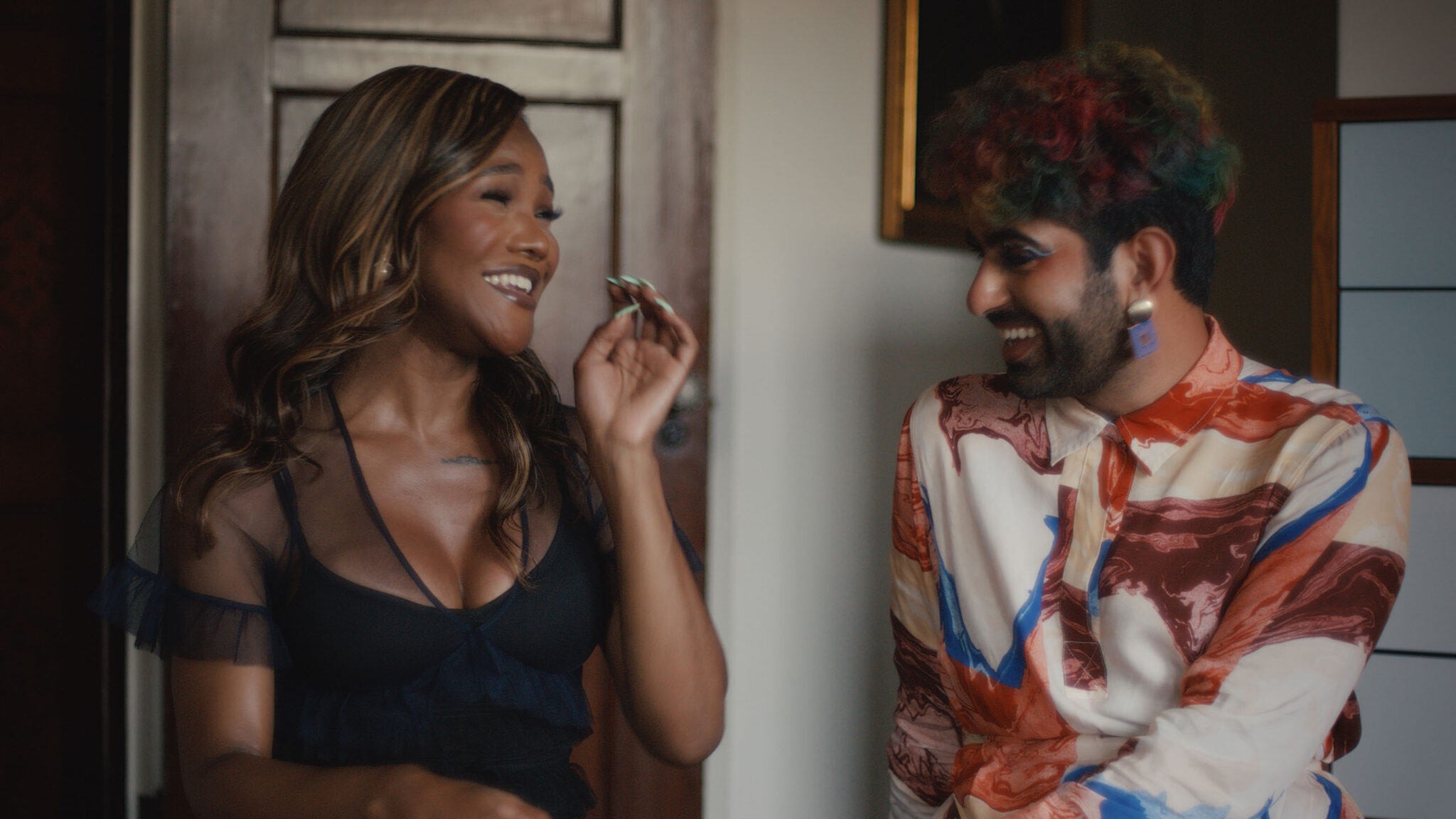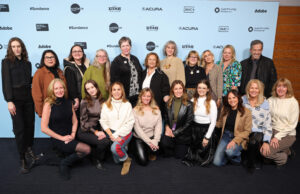By Lucy Spicer
The energy is palpable at Prospector Square Theatre for the premiere of Short Film Program 1 at the 2024 Sundance Film Festival. “We are so grateful to all the filmmakers who shared their work with us this year. We saw 12,000 shorts; we’re playing 53 of them,” says Heidi Zwicker, senior programmer for the Sundance Film Festival, at the program’s introduction.
Short Film Program 1 includes six exciting titles, and all were represented by a member of the film team at the post-premiere Q&A. The program runs the gamut from funny fiction to contemplative nonfiction to bright and colorful animation. One thing they all have in common? They celebrate short film format.
Essex Girls — In director Yero Timi-Biu’s Essex Girls, teenage Bisola has a conversation with the only other Black girl in her year at school and subsequently goes on a journey that unveils a part of herself she had yet to meet. “We were just really inspired by the love of female friendship and girlhood, especially through the lens of Black Britishness,” says Timi-Biu. The director was also inspired by lead actor — and screenwriter — Busayo Ige’s writing.
Together, Timi-Biu and Ige set out to fill a hole that existed in the coming-of-age canon. “We wanted to delve into nostalgia, but also just have something that our younger selves could really love and enjoy.”

Pathological — Writer-director and actor Alison Rich (Training Wheels, 2022 Sundance Film Festival) returns to the Festival with a funny and fanciful 16-minute short about a pathological liar who wakes up one day to find that all the outlandish untruths she has told have come true.
“I read this crazy New York Times article about a year ago about a pathological liar who ruined his life with his compulsion, and these psychologists weighed in, saying that most pathological liars just consider themselves to be quite boring,” recalls Rich. While pathological liars speak in extremes, their underlying feelings are universal. “We can all kind of identify with that sense of inadequacy,” says Rich.
ALOK — “I could follow ALOK around for the next 20 years if they’d have me,” says filmmaker Alex Hedison. “There’s so much to be discovered. But I also felt like it was important to get this message out right now, more than ever.” Through interviews with ALOK and those who know and are inspired by them, Hedison’s 19-minute short film paints a portrait of ALOK’s message of nonconformity, love, community, and being true to oneself.
“I think we all are pretty inspired by ALOK,” says Hedison. “The love I felt for them, for the work they’re doing, the way they articulate that work, their poetry, their artistry, how it spoke to me, how it invited me to unfold and become as much of myself as possible — I felt like I wanted to extend that invitation to all of you.”
Miisufy — Writer-producer Aurelia Aasa took the stage to talk about Miisufy, an animated short film directed by Liisi Grünberg. “The idea was sparked by Tamagotchi,” says Aasa. “We wanted to look at the world from the perspective of those pets.” While many of us forgot to feed our digital pets back in the day, digital cat Miisu wishes her owner would cut her a break.
Humor and the question of digital addiction collide in 10 minutes of vivid animation in what originally was planned as a series. “I’m from Estonia, and actually we have this really long tradition of short animation that’s been going on for like 50, 60 years,” explains Aasa. “So that’s one of the reasons why I’m also producing shorts.”
The Heart — “The whole story came from this one line of dialogue that I wrote in a completely different thing: ‘A man leaves his mother’s heart on a metro bus,’” reveals writer-director Malia Ann. “And that line was weird and held a lot, and I thought, ‘Can I make a film out of one line?’” That one line became The Heart, an 18-minute film about a man (Tunde Adebimpe) who meets a stranger (LaTonya Borsay) while reckoning with his mother’s recent passing.
Along with embracing the challenge of the short film medium, Malia Ann set out to tell a fable. “A strange, kind of allegorical little poem story,” she explains. “A story about strangers and grief and loss, but kind of finding solidarity and community within that.”
Pisko the Crab Child is in Love — “Crab. I am crab,” is writer-director Makoto Nagahisa’s response when asked what inspired him to make his short Pisko the Crab Child is in Love. He continues amid audience laughter, “Anybody’s identity is accepted. Anybody’s identity is wonderful.” Humor and self-acceptance are what drive Nagahisa’s 18-minute short film about a woman nicknamed Pisko (Aiko Kano) who is half crab on her father’s side. Pisko’s journey to find love — and self-love — is filmed in a charmingly lo-fi fashion, partly out of necessity. “Because I don’t have money and I don’t have time, so I must shoot only one day and shoot by home video camera,” says Nagahisa. “But we have passion!”
Nagahisa brought his feature film WE ARE LITTLE ZOMBIES to the Festival back in 2019, where it won the World Cinema Dramatic Special Jury Award for Originality, but shorts have their own appeal for him — they’re an easier way to portray life. “There’s a lot of potential for short films,” he says.




